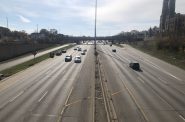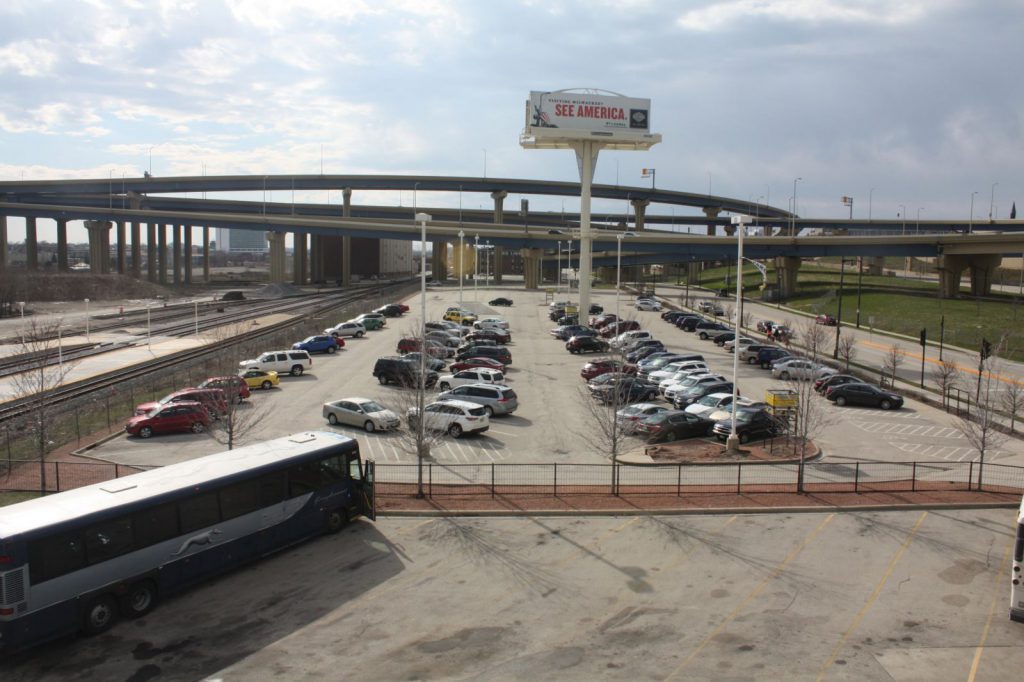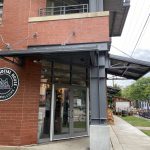Mayors Don’t Understand What’s Needed to Reduce Car Dependence
All the city news you can use.
Want more links to read? Visit The Overhead Wire and signup. Every day at The Overhead Wire we sort through over 1,500 news items about cities and share the best ones with our email list. At the end of the week, we take some of the most popular stories and share them with Urban Milwaukee readers. They are national (or international) links, sometimes entertaining and sometimes absurd, but hopefully useful.
Mayors Don’t Understand What’s Needed to Reduce Autocentricity: The Menino Survey of Mayors, published January 21 from Boston University’s Initiative on Cities, found that nearly half of over a hundred mayors in the US felt their cities were unsafe for cyclists while nearly 40% are concerned about pedestrian safety. However, about 77% of the mayors surveyed believe their speed limits are set at the right level. The survey demonstrates that mayors talk big on going less car-centric, but are not proactive in enacting policies to do so or are educated enough on the solutions. For instance, more than 75% of mayors say their cities are too oriented to cars, but still 60% say their cities feature the right level of street parking, with more than 25% concerned of too little parking in their cities. (Kristin Toussaint | Fast Company)
Why Manhattan’s Skyscrapers Are Empty: As skinny condo skyscrapers rise vacant across the island of Manhattan, as many as 80,000 people sleep in New York City’s shelters and on its streets. Today, nearly half of Manhattan’s luxury condo units that have come onto the market in the past five years are still unsold. The problem is that these condos were not built with New Yorkers in mind, but rather for foreign investors looking for places to park money. Domestically, the Treasury Department has been cracking down on attempts to launder money through real estate but elsewhere, the Chinese economy slowed while declining oil prices in Russia and the Middle East dampened demand for foreign investments. Developers of these luxury units are now reluctant to lower prices, lest the market suddenly clears. (Derek Thompson | The Atlantic)
Paris’ Very Progressive Agenda: As Mayor Anne Hidalgo seeks reelection in March, she unveiled proposals this week, including a referendum on the role of Airbnb, a commitment to spending 20 billion euros to convert offices into affordable housing, and making the city center “100 percent bicycle.” While such proposals are not so revolutionary in Europe, they are radical by international standards. Her opponents in the mayoral elections have largely been skeptical, questioning her proposed policies relative to her actual policy track record or recognizing her failure to meet previous similar goals. All but one of her opponents, however, carry similar ambitious green policies, so there is still a victory for urban politics and sustainability regardless of the voting outcome. (Feargus O’Sullivan | CityLab)
How Nashville’s Transit Referendum Derailed: In May 2018, “Let’s Move Nashville” failed at the polls by a 64-36 margin, preventing billions of dollars from being directed toward rail and bus expansion. TransitCenter posits that this was because the referendum was rushed and insular, proposing a transit package out of touch with the needs and desires of Nashville residents. Insularity refers to mainly only the mayor’s office and Nashville’s business community preparing the referendum. Former Mayor Megan Barry also rushed the campaign in hopes to have it approved before reelection (she eventually resigned due to other issues), thereby omitting complete detailed engineering, funding strategy, and financing plan. The haste also came at the expense of robust public engagement. The lack of engagement is widely criticized especially by the city’s African American community, who comprise 29% of Nashville’s population but half of its transit ridership. (TransitCenter)
China’s Speedy Single-Use Ban: China has enacted an incredibly speedy ban on single-use plastics. Plastic bags will be banned in all major cities by the end of the year, while single-use straws in restaurants will also be banned within the same time period. On the production side, the manufacturing and sale of plastic bags and films less than certain thicknesses will also be banned by the end of 2020. The import of all plastic waste (somehow there was still some sneaking through) has been completely banned. Cities, which contain roughly 55% of the nation’s population, will be hit hardest by the ban, though rural areas and towns will have until 2025 to reach their targets. These ambitious goals are especially notable as China is currently the world’s #1 producer of plastic and plastic waste. (Rain Noe | Core77)
Quote of the Week
So if you manage to have a city where people on average are driving a lot fewer miles per capita to get what they need done, that’s just as good as having a city where a small portion of the people are taking transit.
Streetlight Data CEO Laura Schewel in Fast Company discussing how they set up the US Cities Climate Transportation Index scoring system.
This week on the podcast, Laura Wiens of Pittsburgh for Public Transit talks about the group’s report on autonomous vehicles called, “Wait, Who’s Driving This Thing?”
Urban Reads
-
How Traffic Noise Impacts Children’s Brains
 Jul 1st, 2024 by Jeff Wood
Jul 1st, 2024 by Jeff Wood
-
Number of Super Commuters is Rising
 Jun 22nd, 2024 by Jeff Wood
Jun 22nd, 2024 by Jeff Wood
-
Why Has the Walkable City Been Villainized?
 Jun 9th, 2024 by Jeff Wood
Jun 9th, 2024 by Jeff Wood



















